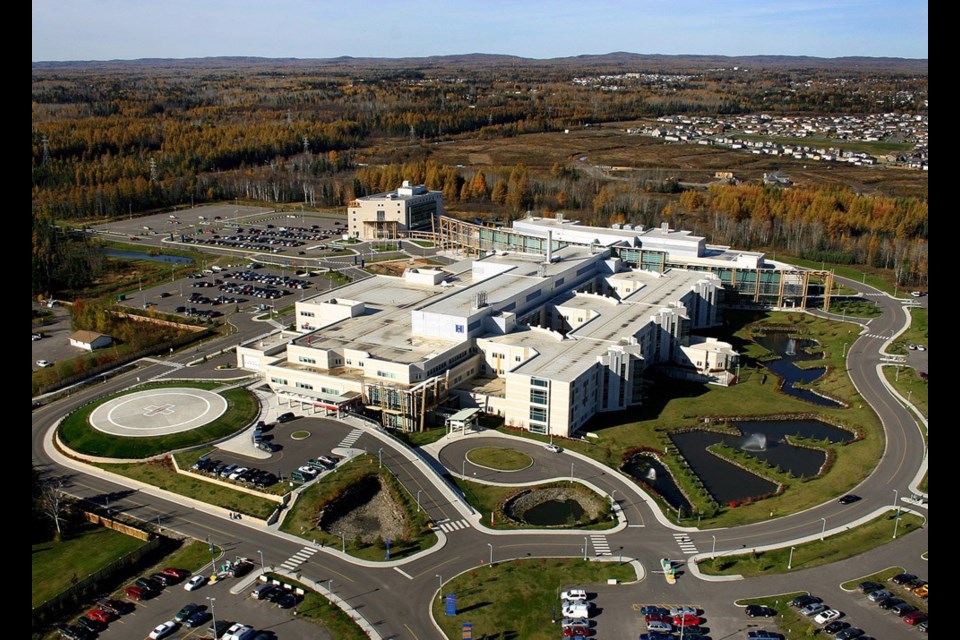THUNDER BAY — Thunder Bay Regional Health Sciences Centre has developed a plan to reopen operating rooms to elective surgeries.
Dr. Stuart Kennedy, the hospital's COVID-19 incident manager and executive vice-president, says the plan will be presented in the coming days to Ontario Health North, the successor to the North West Local Health Integration Network.
In an interview Wednesday, Dr. Kennedy said that, for the sake of patients who are suffering, it's important that elective surgery resume.
Nearly 53,000 such surgeries were cancelled or remained unscheduled in Ontario when the province's hospitals were required to prepare for the COVID-19 pandemic.
Health minister Christine Elliott said last week there's no timeline for when procedures can be booked again.
When that does happen, hospitals will have to meet a number of criteria first.
"We have to be under 90 per cent capacity, we have to have the ability to ramp down if we get a second wave [of COVID-19], we to have enough medications and personal protective equipment. We've met all those criteria," Kennedy said.
As of Wednesday, the Health Sciences Centre was at 75 per cent capacity.
Only two patients had confirmed cases of COVID-19.
One of these individuals was released from the Intensive Care Unit on Monday, leaving no COVID-19 patients in the ICU.
The other person was deemed to be COVID positive, but Kennedy said the test came back "weakly" positive, and the swab requires more detailed work in Toronto.
Fourteen patients in the hospital were presumptive COVID cases, with test results still pending.
"We feel we're in a better position than most communities. With seven active cases in a population of over 100,000, we're doing pretty good that way," Kennedy said.
Kennedy said the situation in the hospital is "well manageable" with the resources it has.
TBRHSC has 14 operating rooms, plus two in Labour & Delivery for Caesarian sections.
In the earlier stages of the pandemic, it was using only three operating rooms most of the time for urgent life-or-death surgeries.
Two weeks ago, a fourth was put in use for urgent cases, and this week procedures started in a fifth operating room.
Dr. Kennedy said the volume has increased by 25 to 30 per cent.
"That's dependent on PPE supply and medications, because there's a worldwide shortage of medications," he said.
The hospital expects to go up to six operating rooms within the next week to 10 days.
Kennedy described it as "a gradual escalation. We are still dealing with priority, urgent cases."
People still waiting for surgery are 'suffering every single day'
Most surgeries have been for cancer cases, but other urgent procedures such as appendectomies and gall bladder removals are also being done.
"What we need to get on to do is surgery for pain and suffering. It's going on all the time in the community. We need to get back to doing our joint surgeries. Our senior population is suffering every single day. Each step they take, they are in pain," Kennedy said.
He said some patients experiencing chronic pain have been "squeezed through" the logjam because their pain is not manageable anymore.
But he's not satisifed with that, saying the hospital has "pushed" the Ministry of Health to allow elective procedures.
"We call them elective, but they really need to be done. We don't do needless surgery...Everybody on that list needs surgery, and most of them needed it yesterday."
Despite the fact Kennedy believes the hospital and the community are coping comparatively well with COVID-19, he continues to stress the need for more testing.
"If you come into the ER and need your appendix out, we need to know if you are COVID-positive or COVID-negative. So we can decrease the exposure of our surgeons and anesthetists, and preserve our PPE. We also need to know the prevalence in the community, once things start going back to normal," he said.
To help prevent a potential second wave of COVID-19, Kennedy said testing is required to identify the incidence of COVID-19 among people not displaying symptoms.
"We're always one breakout away from a massive influx of COVID-19," he cautioned.
"If we have one instance of spread into a long-term care home, a jail, or the homeless population, that can spread like wildfire, and can back up our resources very quickly. We're one step away every day."
For that reason, Kennedy also reiterated his strong opposition to reopening the Canada-U.S. border anytime soon.
He said the Americans are not doing as good a job containing the pandemic.
"Our best protection in northwestern Ontario is to isolate ourselves, to keep people who have COVID-19 out of our community."
